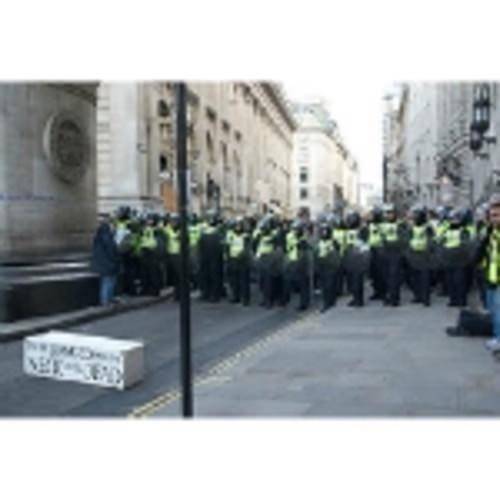London’s Metropolitan police told reporters they were delving into Twitter and other social media as part of their investigation into looting. For the past four days, many parts of London, centering on Tottenham, have erupted in fire and looting. Started as a response to the alleged shooting of a protestor, Mark Duggan, it seems to have taken a less salubrious turn as the days wore on. Now, police are looking at, among other things, tweeted pictures of looters’ spoils. According to PCR, Deputy Assistant Commissioner Stephen Kavanagh told the media:

“Social media and other methods have been used to organise these levels of greed and criminality … That investigation is already under way and that is exactly the sort of thing we are looking at.”
“Incredibly,” reported PRC, “at least one looter chose to post a twitpic posing with a swag of looted products which included DVD, videogames and electronic accessories.”

More to the point, and less dramatically, photo-sharing and video sites, as well as text tweets and social networks, may serve as evidence for police to identify, apprehend and charge – and for prosecutors to secure verdicts against – looters and those involved in smashing windows and starting fires.
Blackberry
In other social media-meets-London riot news, attention has been focused on Blackberry’s private messaging service, known as BBM. London tech and media specialist Jonathan Akwue wrote a post on his blog outlining the case for Blackberry as the messaging vector of choice for the rioters.
“BBM as it is known, is an instant messenger system that has become popular for three main reasons: it’s fast (naturally), it’s virtually free, and unlike Twitter or Facebook, it’s private… I don’t know the extent to which the police are able to monitor the BBM network, but Canadian police officers have previously complained that criminals prefer using Blackberry Messenger because it is harder to wiretap.”
Although many of the messages seem organizational in nature, many also seem criminal, with exhortations to rob and information on areas unprotected by the police.
In a subsequent post, Akwue said that “BBM is the social network of choice” for “the urban young people I’m connected to.” One user told him, “BBM is standard issue… Of course. It’s all about BBM. This is our network!”
I agree with Akwue that, just as Egypt’s was not a Facebook revolution, this too, for better or worse, was a story of people acting on their environment, not of technology acting on people.
Riot police photo by Steve Jackson, video by Alan Stanton | other sources: New York Times | thanks to Deane Rimmerman
















